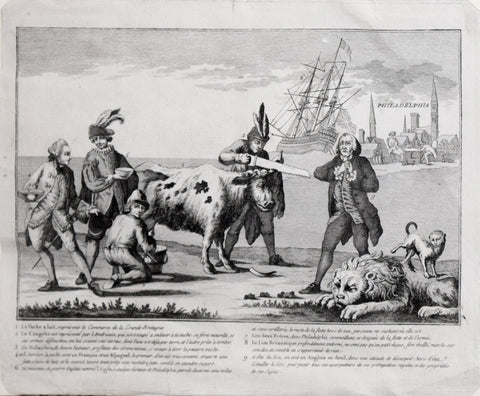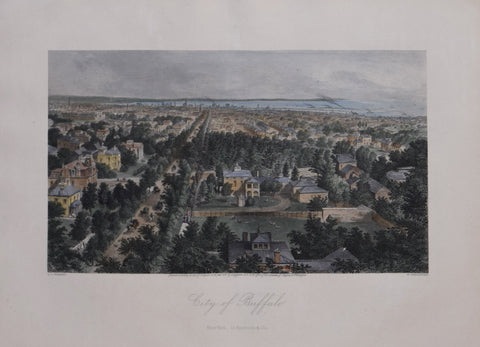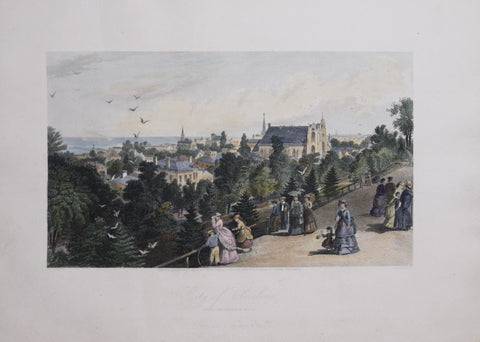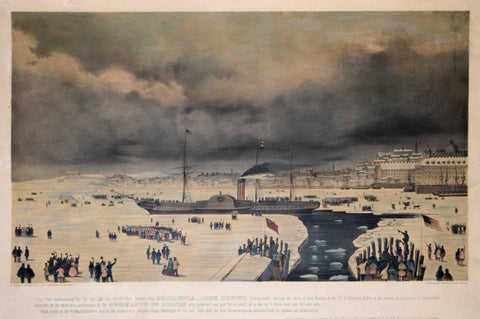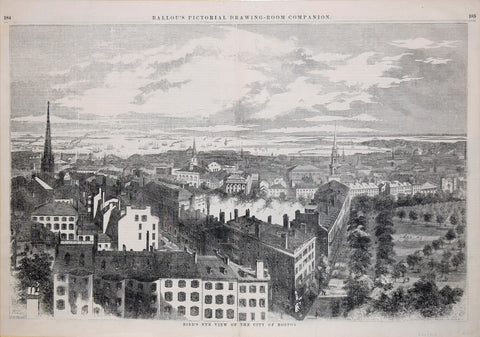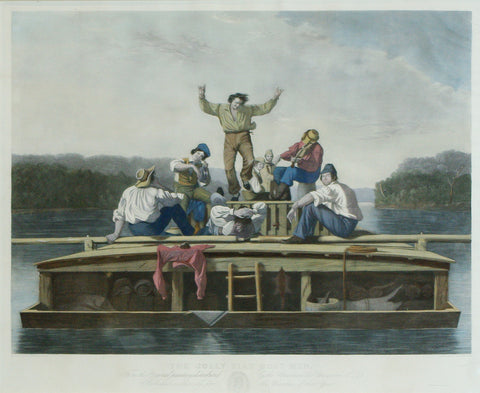
George Caleb Bingham (1811-1879), The Jolly Flat Boatman
George Caleb Bingham (1811-1879)
The Jolly Flat Boatman
c. 1847
Published Exclusively for the Members of the Year
Engraving with original hand-coloring
Engraved by T Doney
Image size: 21 ½ x 25”
Frame size: 31 ¾ x 35 ½”
One of the leading American genre painters of the mid-nineteenth century, George Caleb Bingham (1811-1879) created some of the most memorable views of American small town life. Bingham was fascinated by the democratic process and by the ways in which it permeated everyday existence in communities far removed from the big cities. Inspired perhaps by scenes he had witnessed personally, Bingham depicted the days when ballots were handwritten and politicians addressed the local public from soap boxes or tree stumps.
Nostalgic and sentimental, Bingham's views were perhaps not fully realistic visions of small town American life in the 19th century, but they did represent the ideal of a rural, innocent, and peaceful existence for which so many late 19th-century Americans longed - especially on the eve of the Civil War. Still, Bingham's subtle and splendid engravings offer a glimpse into a time when the democratic system was still, in many ways, a grassroots movement and when all Americans felt eager to participate.
In 1819 artist George Caleb Bingham’s family, like many others, moved west of the Mississippi. They settled in the wilderness town of Franklin in the Missouri Territory. Farmers in the area shipped crops and animals in flatboats down the nearby Missouri River to the Mississippi, and on to the port of New Orleans. From there goods were shipped to markets on the east coast of the
United States.
Bingham, a self taught artist, lived most of his life in Missouri. Working before America’s vastness was made accessible by roads and railways, he found his subjects in the boatmen and trappers who populated his state’s great rivers, the Missouri and the Mississippi. Through these subjects he captured a taste of life in the American West. Bingham may well have witnessed a scene such as the one he recorded in the Jolly Flatboatmen as a child sitting on the banks of the Missouri River.
We Also Recommend

